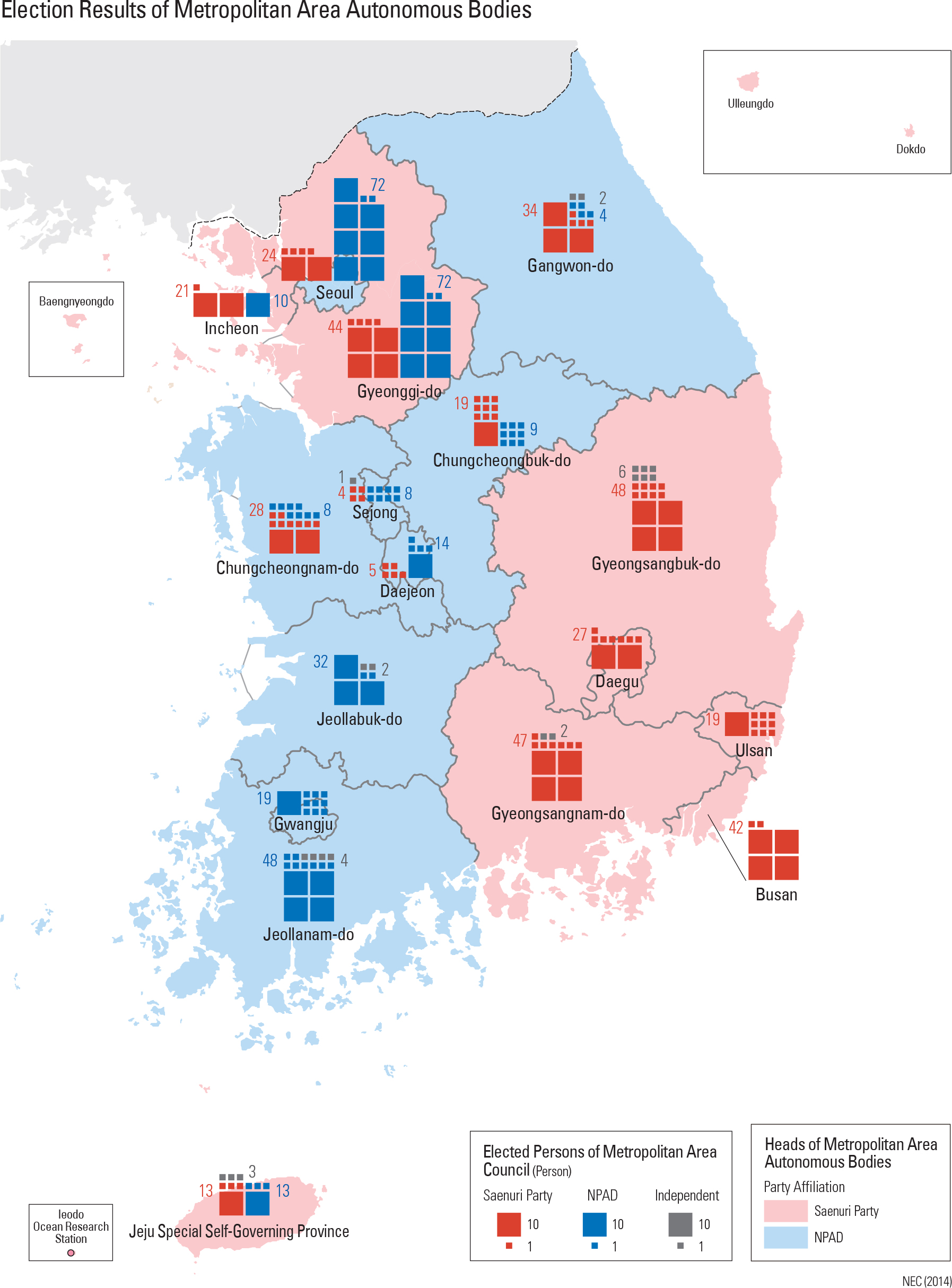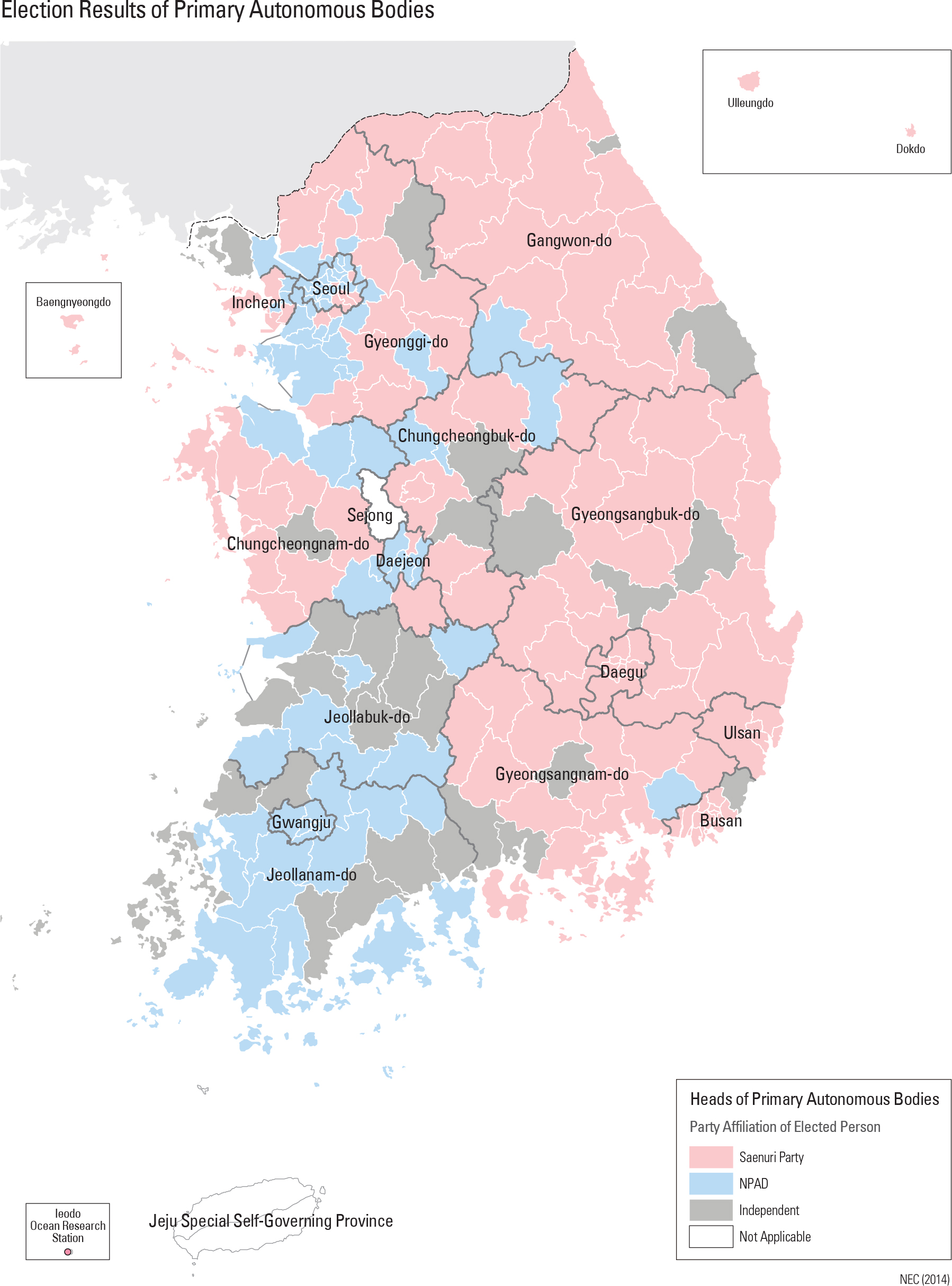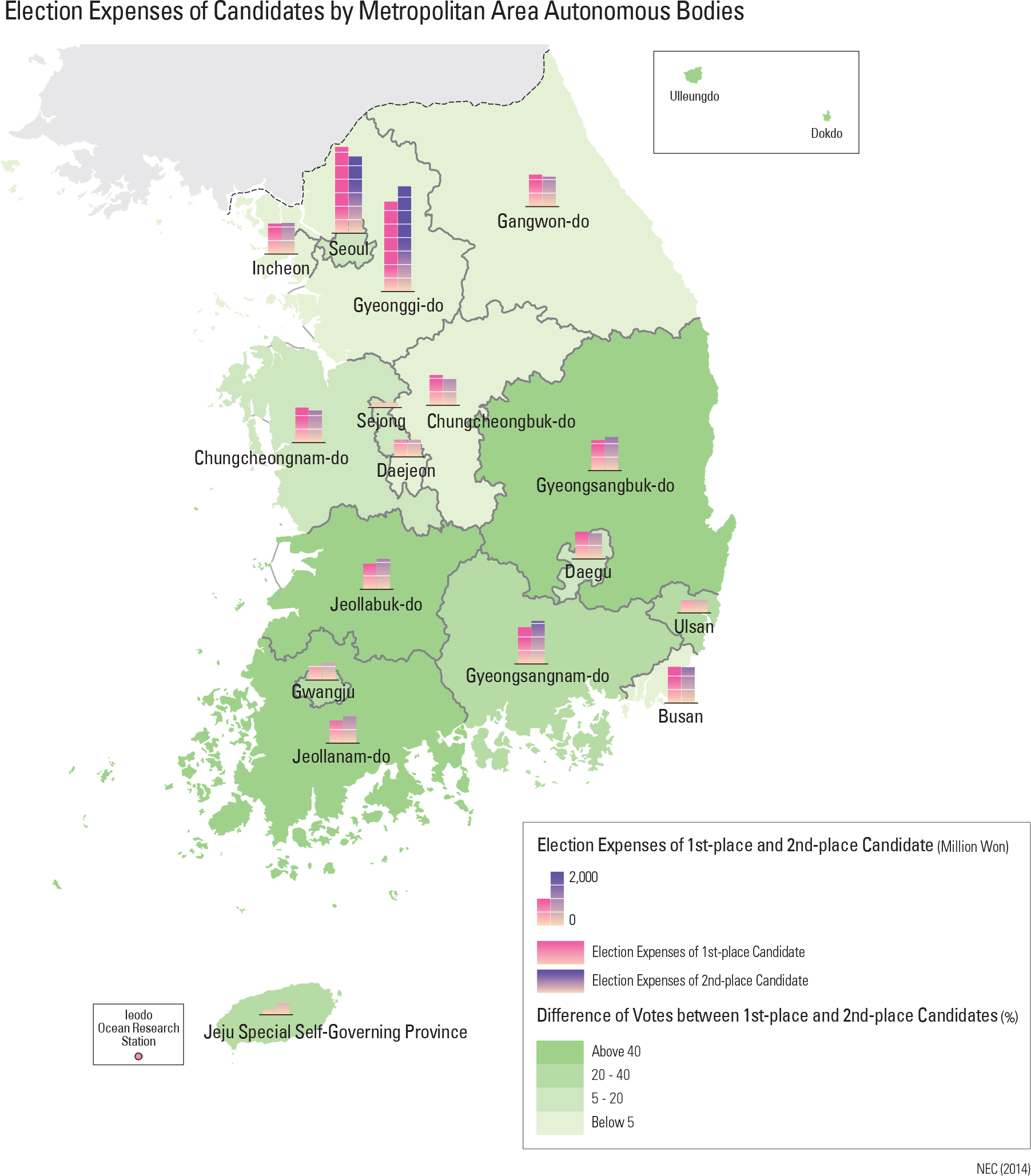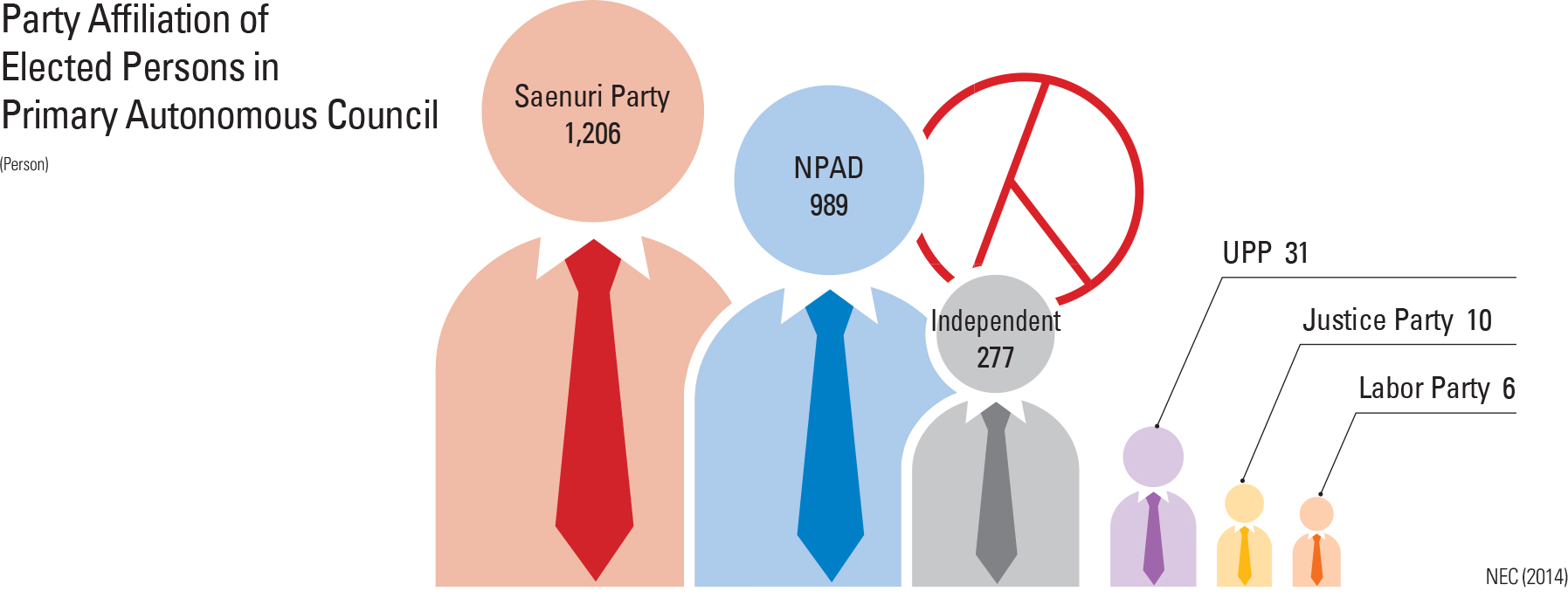Local elections are an important way for Korean residents to participate in electing the heads of local governments and the members of local councils that represent them. Local elections took place for the first time in 1991, and the sixth local autonomy term started with the election on June 4, 2014. The goal of local self-governing culture, based on local leadership and autonomy, has been reached gradually over two decades despite the fact that there are still problems such as insufficient revenue and the decentralization of power.
The local election is an important activity in helping to cultivate local autonomy in that the elective representatives serve each locality. However, in every local election in Korea, key agenda items tend to focus on the central-level political issues such as mid-term evaluation of the central government and the power structure of party politics rather than on pending local issues. The turnout of the local election in 2014 was the highest since the first local election in 1991, which seems to result from both the expansion of early voting and the increasing interest in the security of daily life. The party nomination system is implemented in local elections in Korea, and the distribution of the heads of local governments and the members of local councils clearly reflects the bi-partisan structure of both the Saenuri Party and the New Politics Alliance for Democracy (NPAD). For the heads of macro-level self-governing bodies, the Saenuri Party has eight officials-elect (47.1%) out of 17 seats. The NPAD has 9 officials-elect (52.9%). For the heads of primary-level bodies, the SP has 117 heads-elect out of all 226 seats, whereas the NPAD has 80 officials-elect (35.4%) and 29 officials-elect (12.8%) are nonpartisan. In the meantime, for the macro-level members of local councils, the SP has 375 seats (53.2%) of all 705 and the NPAD has 309 (43.8%), while 21 officials-elect (2.9%) are nonpartisan. For the primarylevel members, the SP has 1,206 seats (47.9%) among 2,519 and the NPAD has 989 (39.3%), while 324 officials-elect (12.9%) are nonpartisan.



